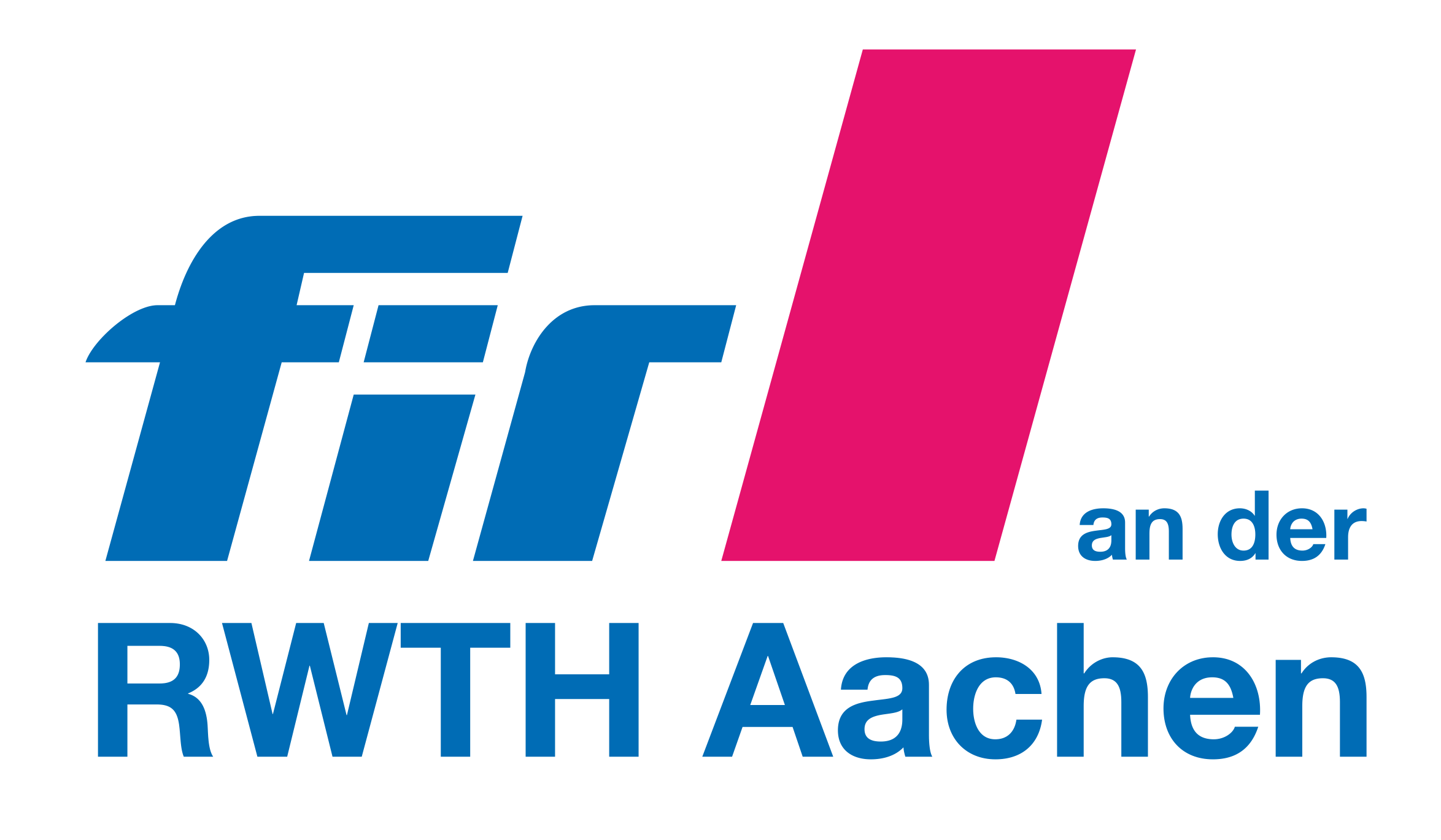PROmining
Establishment of a platform to improve the forecasting capability and increase the utilization of SMEs in the German stone and earth industry

The aim of the PROmining research project is the company-neutral conceptual design, development and realization of a web-based demonstrator to improve the forecasting capability and increase the capacity utilization of SMEs in the German stone and earth industry. The planned demonstrator of a platform solution is intended to create an incentive for SMEs to tackle the digital transformation and improve internal data management. The project is being carried out by FIR e. V. at RWTH Aachen University in cooperation with the Institute of Mineral Resources Engineering at RWTH Aachen University.
Initial situation
Small and medium-sized enterprises (SMEs) are the backbone of German industry. The SMEs, which predominate in the industry, face particular challenges, especially with regard to digitization. Within the German stone and earth industry (S&E industry), there is currently no generally applicable trend toward digitization. This is also reflected in the industry comparison, which in some cases shows major deficits in digitization. There are only a few companies that are actively pursuing digital transformation and automation. The great technological catch-up potential of the sector is related in particular to the structure of the companies. For the mostly very small companies with few employees, and due to the very low profit margins customary in the industry, the adaptation of new technologies is accompanied by a great entrepreneurial risk. The transition phase, which occurs when switching to a new software solution, inevitably involves a high level of additional work for the companies, which is often not manageable for small companies in addition to their daily business. Players within the German S&E industry also have to cope with other challenges that are characteristic of the industry. Capacity utilization in the S&E industry is subject to strong fluctuations due to regional as well as cyclical and seasonal fluctuations in demand. There is a lack of data-based decision-making to make informed decisions, which is why most decisions are based on experience. The various risk barriers and inhibition thresholds prevent the adaptation of new technological developments and the entry of digitalization into the industry. A technological innovation within the industry in question could, for example, be a platform solution that enables companies to forecast and respond to fluctuating demand.
Solution approach
The PROmining research project addresses the lack of a generally valid trend toward digitization in the German S&E industry with the research objective of creating an opportunity for SMEs in particular to benefit from the platform economy by developing a demonstrator of a platform solution. The stated objective is realized by five sub-objectives:
- Presentation of the benefits of a platform solution with its potentials and its ecosystem as well as typologization of the companies in the S&E industry.
- Identification of relevant internal and external data sources for the operation of a platform to enable companies to improve their own data collection and management.
- Elaboration of a long-term, commercially viable platform solution and identification of potential services that can be offered on this platform and that contribute to forecast capability improvement and capacity utilization based on the data provided.
- Company-neutral identification and provision of measures and tools to identify influential factors to increase forecasting capability and optimize services.
- Support SMEs in the company-specific implementation of the platform demonstrator and accompany the transformation process of a company with a classic, analog business model towards the forecast-based use of the platform and the services offered.
Expected result
By participating in the platform economy initiated by the demonstrator, companies in the S&E industry will be enabled to generate knowledge about current capacity utilization, to respond to fluctuating demand through improved forecasting capability and to plan resources sensibly when capacities are free.
Benefits for the target group
For the first time, companies in the stone and earth industry will be able to counter rising costs and volatile prices with increased efficiency. They will be enabled to act more economically by generating knowledge about current capacity utilization and forecasting demand. The ability to generate forecasts also provides companies with a decision-making basis for planning financing projects or maintenance work, for example. Furthermore, the implementation of a platform reduces the level of overproduction, which has a positive impact on sustainability.
Project partners
- amo-Asphalt GmbH & Co. KG, Untersiemau
- BSR Schotterwerk GmbH, Stolberg
- Bundesverband Mineralische Rohstoffe e. V., Berlin
- DERICHS u KONERTZ Projektentwicklung GmbH, Aachen
- Diabaswerk Halbeswig GmbH & Co. KG, Wuppertal
- Frika Kies GmbH u. Co. KG, Kamp-Lintfort
- Granitwerk Fischer GmbH & Co. KG, Wurzbach
- H. Geiger GmbH Stein- und Schotterwerke, Kinding/Pfraundorf
- HH-Basalt- und Diabaswerk GmbH, Solms-Niederbiel
- Mitteldeutsche Hartstein-Industrie AG, Hanau
- Nivelsteiner Sandwerke und Sandsteinbrüche GmbH, Herzogenrath
- PeoplePlanetProfit GmbH, Weingarten
- Sibelco Deutschland GmbH, Ransbach-Baumbach
- talpasolutions GmbH, Essen
Branch
- Machinery and Plant Engineering
Topic Area
- Business Transformation
Research Focus
- Business Transformation Management
FIR Topics
JRF Guiding Topic
- Industry & Environment
Contactperson
Projectinfos
Duration
Funding no.
21480 NProject homepage
projekt-promining.deFunding information
The IGF project 21480 N of the Research Association FIR e. V. at the RWTH Aachen University is funded via the AiF within the framework of the programme for the funding of cooperative industrial research (IGF) by the Federal Ministry for Economic Affairs and Climate Action (BMWK) on the basis of a resolution of the German Bundestag.




